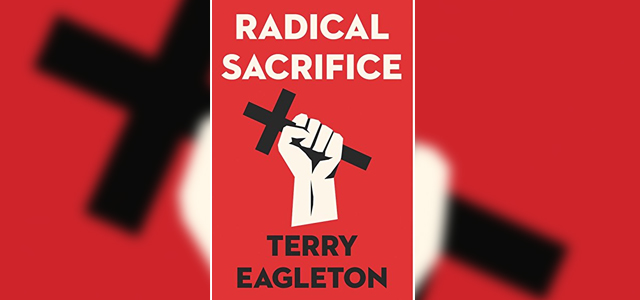
What do we sacrifice?

Review: Radical Sacrifice
Author Terry Eagleton, Yale University Press
Sacrifice is a multifaceted, historically changeable word. It can mean paying the ultimate price – death – or something merely symbolic. It can help the status quo or threaten it. In the words of one theorist, it can be obligation or transgression. The Anzacs made sacrifices for the continuity of Empire, while for Dietrich Bonhoeffer it meant seeking an end to the empire of the Third Reich. As well as addressing inequality, it can perpetuate it, as seen in the austerity measures in Europe which have been used to pay for the recklessness and power of the rich.
The notion of sacrifice is central to religion, though theologian Robert Daly points out that Christian ideas of sacrifice are profoundly different to those of ancient religions, which are versions of an exchange with the gods. But the idea that an angry God needed to be placated by the sacrifice of Jesus persists. Secular society retains this traditional meaning under different guises, including sacrificing a handful of cricketers to the angry, sports loving public.
Sacrifice is the perfect topic for Terry Eagleton, in whose writing, he admits, we find the rare concurrence of leftist political thinking and Christianity. As a literary critic he brings in examples from fiction, grapples with philosophy and psychology (which may be hard going for some), and then applies them to politics and ethics. In Radical Sacrifice (Yale), as the title suggests, he is out to retrieve the more radical aspects of sacrifice, rescuing it from conservativism, but revealing as blinkered modern liberalism’s wariness of it exactly because of its tendency to be associated with conservatism and nationalism. In Eagleton’s view, Jesus’ sacrifice is radically transformative because it upends the way the world thinks about power.
Traditionally sacrifice involves restoring the balance through putting the greater good ahead of the individual. In an individualistic society, this may be entirely internal, as in short-term pain for long-term gain. There is something of the Protestant work ethic in this, but Jesus seemed indifferent to such frugality, as indicated by the incident where a woman poured expensive perfume over him. Although indifferent to material wealth, Jesus nevertheless celebrates life itself. Eagleton points out that it is not sacrifice to give up what you don’t value, and Jesus’ agony in Gethsemane shows how he valued what he was giving up. Death in Christianity, Eagleton says, is ‘accepted but not endorsed’, which shows up accounts of Christianity as ascetic and life-denying as false. As he says, the monastic life has been traditionally valued not because ordinary life is worthless, but because monks and nuns were giving up the riches of ordinary life for a higher purpose. (Things went haywire when this understanding was upended, which was what Martin Luther was reacting to.)
In the Old Testament, the prophets condemned ritual sacrifice as a woeful attempt to buy God off while the work of addressing society’s injustices remained undone. The challenge to the idea of God as a stern father needing appeasement through ritual appears here first. The early Christians likewise ignored the surrounding culture’s emphasis on ritual sacrifice for the good of society and concentrated instead on society’s outcasts, of course attracting the wrath of those in power.
Jesus was sacrificed, says Eagleton, for suggesting that God’s kingdom belongs not to the rich but to the poor. The authorities of his time saw the danger to their own position, not to mention the offence, from the idea that those who led the community turned their backs to God, and the poor and outcast were more in-tune with God.
In order to further their own ends, the rulers of the world are always happy to let others do the sacrificing. In the Russian Revolution the peasants were sacrificed for the sake of the supposedly egalitarian communist future. For Friedrich Nietzsche, society can only function if the elite (including himself) raise themselves on the bent backs of the poor masses. Lest we cast too many stones, we may ask what or who we are sacrificing to the idol of our Western lifestyles: the global poor, the health of our oceans, the wellbeing of future generations?
Nick Mattiske




























































